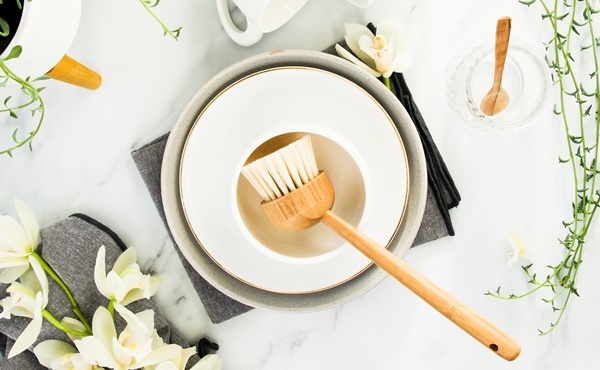As Plastic Free July has kicked off, sustainable products business Munch is celebrating a massive plastic-free milestone―one million pieces of plastic have been saved from landfill by buying its plastic-free reusable alternatives since the business was established in 2014.
Founder and director of New Zealand based Munch, Anna Bordignon, says hitting this one million milestone is a Munch customer community achievement.
“By choosing our reusable products over the years, together we have saved all that plastic from being used and sent to the landfill,” she enthuses.

Statistics show that over 660 thousand tonnes of plastic waste are created by Australians every year with 85 per cent of soft plastics from bags and packaging ending up in landfill. The research also found that 80 per cent of people were concerned about the plastic in their environment and that more than two thirds of consumers want sustainable packaging and guarantees that products are sourced fairly.
“Munch has been at the forefront of plastic-free alternatives. We offer seminars, tips to help reduce plastics and a range that is fully reusable with plastic alternatives like sustainably sourced bamboo, silicone and organic fabrics. This is something I really believe in and the Munch range truly reflects my advocacy for eco-conscious products for all ages and homes.”
Its product range includes reusable beeswax snack bags, organic litterless lunch bags, silicone baby feeders, bamboo cutlery sets, bamboo dish brushes, eco dishcloths and organic fire starters.

“Since the beginning, we have focused on bringing fun, useful, quality products out which are affordable for everyday families. It’s important to be appealing and accessible to most people―to empower them to be more sustainable,” says Bordignon.
Munch has been a strong voice in plastic-free campaigns over several years and its latest project is to collect and repurpose silicone in New Zealand and soon in Australia. The Silicone Send Back project collects any brand of food grade silicone products no longer being used and is a first project of its kind across Australasia to start repurposing post-consumer silicone. There are now several collection points for food grade silicone set up in the community, in retail stores and resource recovery centres.
“This scheme will allow consumers to send back their silicone for repurposing. Every customer that does this currently in New Zealand receives $10 off their next Munch purchase so it’s a great incentive to help the planet. It’s all part of our product stewardship premise―we try our best to design and make our products to last (or made with biodegradable materials) and then put in place systems to enable products to be reused and recycled when they are worn out.”

Bordignon adds she sees a huge need to offer Aussie parents and homeowners a range that is not only plastic-free, but robust and practical in its design.
“There is so much plastic waste created by Australians every year and a lot of it is ending up in landfill. I am also seeing a big microplastics problem in both New Zealand and Australia, polluting rivers, waterways and oceans―this is particularly relevant in Australia with its precious coastline and Great Barrier Reef. All good reasons to launch Munch into a market that is ready for change. We are keen to speak to like-minded distributors in Australia in the parenting and gift areas as we know we offer an alternative.
“I’d like to think that Australians are just as concerned with sustainability as Kiwis. We see sales increasing in Australia which is a good sign that Aussies are also very interested in supporting and buying ethically made products. We are sure there are many more ready to be part of a bigger picture to help our environment and raise little eco-warriors along the way.”








